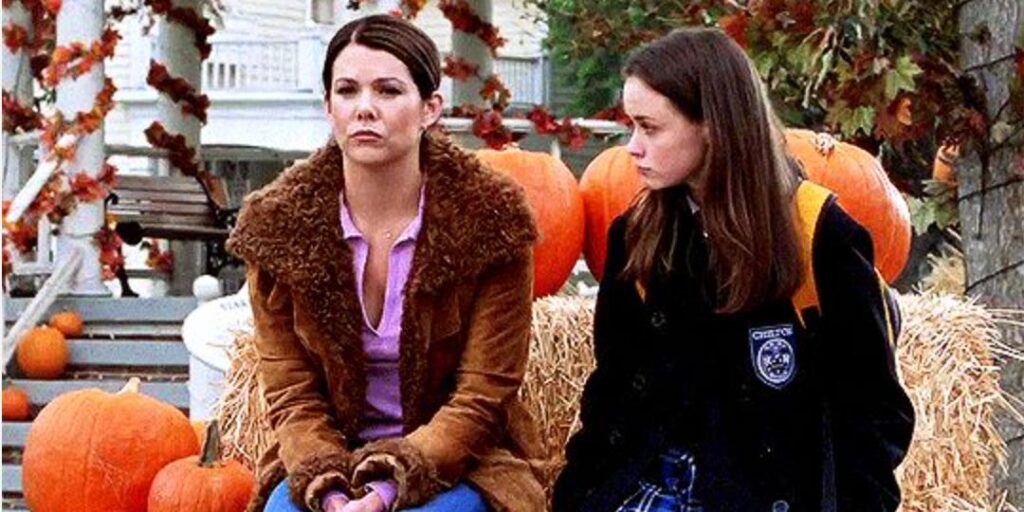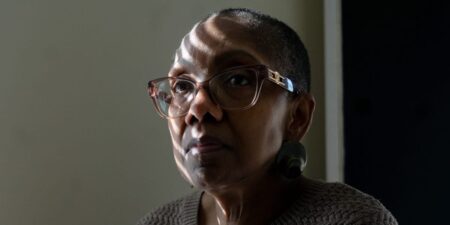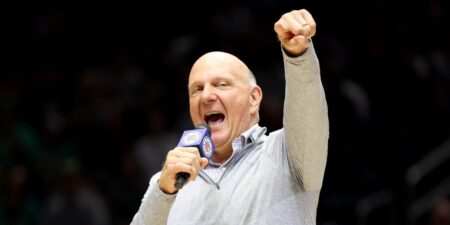- Rewatching my fall fave, “Gilmore Girls,” as a parent feels less nostalgic and more painful.
- I don’t like seeing the body shaming or questionable romantic relationships on the show.
- In my 30s, I now understand that parents shouldn’t rely on their children for emotional support.
I found “Gilmore Girls” my first year of high school, and I’d never felt more seen.
A bookish teen who’d rather read than basically anything else. A mother-daughter duo whose relationship felt more like a friendship. A small town full of quirky characters and whimsical plot lines. It was dreamy.
“Gilmore Girls” felt fun and fresh. It broke a lot of the stereotypes and tropes female leads always seemed to get trapped in (because, really, did Lorelai or Rory ever really need a man?).
That’s what I wanted to show the leading ladies in my life: Study hard, never take life too seriously, and lean into who you are (messiness and all). There were so few shows that gave us those permissions back then. I couldn’t wait for the day when I could share a show I used to love with my own daughters — until I finally did.
As my tween girls commented on different episodes, it felt less quirky. The rose-colored lenses through which I remembered the show shattered.
Over a decade later, the show is more cringeworthy than nostalgic to me.
I used to envy Rory and Lorelai’s bond, but I’d never want that kind of relationship with my kids now
Lorelai and Rory are often portrayed as this awesome, inspiring mother-daughter duo with an unbreakable relationship. When I was a teen, I thought they were the dream team — they could talk about anything and have unbarred open dialogues.
Of course, this all works much better in theory than in practice. As an adult, I find their relationship less admirable.
Lorelai constantly leaned on Rory for emotional support, which I don’t think a child should have to do.
I also can’t get over how unrealistic Lorelai’s financial situation is, especially as a single parent
Did anyone else ever wonder how Lorelai managed to only work one job, pay a mortgage, provide for her daughter, and always eat takeout?
I mean, I would love not to have to worry about the grocery shopping, menu planning, cooking, and subsequent cleanup. But the reality is, it’s just too expensive to do anything else.
Lorelai relying on random people in her life (Luke with the $15,000 termite loan and her parents with Rory’s tuition) to foot the serious bills was unrealistic for most people and a bit disappointing to see played back. For all the “hard work” and “make it on my own” sentiments espoused, I think Lorelai fails to represent the true struggles that so many single parents go through.
It also essentially taught Rory that all she needed to do was be the best of the best, and everything else would magically fall into place for her.
As a teen, I thought that if I were the best and the brightest, the opportunities would be endless. As an adult, I realize this is usually only true when you have money.
The show’s blatant body shaming hit me like a ton of bricks
I have a history of disordered eating, and I’ve done a lot of work to not pass that on to my daughters. Rewatching the number of times “fat” is used as a dig on “Gilmore Girls” was painful.
Nearly every reference to one pregnant character is about her being fat. And the time the girls watched the ballet at Yale, Lorelai made a remark about the lead ballerina not having any friends to give her the “heads up on the roll of fat around her bra strap.”
It was more than embarrassing to watch this with my girls. In fact, it was downright shameful, especially since these comments were coming from two straight-sized women who seemed to eat nothing but junk food and coffee.
Pretty much every romantic relationship on the show makes me cringe as an adult
When “Gilmore Girls” initially ran, I knew nothing about relationships, especially healthy ones. Rory’s journey of finding the perfect first boyfriend, followed by the angsty bad boy, followed by a privileged prince charming, felt like a fairy tale.
It wasn’t until I’d lived through a handful of my own romantic relationships that I realized just how problematic many of the pairings depicted on the show turned out to be. Rewatching it with my girls, our eyebrows were practically stuck in an “oh no they didn’t” position as we watched red flag after red flag pop up.
Just to name a few: Lorelai could never set real boundaries with Christopher, Dean constantly needed reassurance from Rory even when they spent all their time together, and Rory put herself in intimate situations with people who weren’t available.
When I first watched ‘Gilmore Girls,’ it felt revolutionary — now I see it as a product of its time
It was disappointing that something I enjoyed so much as a kid aged so poorly. Rewatching it made all the trope-crushing feminism feel more like it should’ve been a given and less like some awe-inspiring, radical new concept.
Even the Netflix revival in 2016, which held so much promise to right some of these wrongs, fell flat for me. In fact, I think it made some of the characters even less endearing.
My daughters and I won’t be cozying up on the couch to rewatch “Gilmore Girls” every fall, and that’s OK. Maybe we’ll find a new comfort show to enjoy together.
This story was originally published in September 2023 and most recently updated on October 11, 2024.
Read the full article here
















